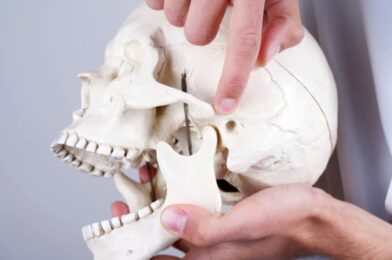Why does my jaw hurt when I yawn? Well, this is a common question among all, and most people suffer from this condition in their lifetime. Jaw pain can be a very painful condition that can severely affect different abilities. For example, your abilities to speak and eat.
Do you notice any joint popping, stiffness, or jaw pain whenever you open your mouth to yawn or chew? Even though there are different things that can develop jaw pain, if the symptoms are very severe, you may have TMJ or temporomandibular joint disorder. However, it is difficult to tell if you are feeling the pain due to a jaw issue or there is something else. So, if you are worried about why “jaw hurts when I yawn,” then it will be better for you to consult a doctor as soon as possible.
Why does my jaw hurt when I yawn? Here are some possible reasons
Remember that not all people suffering from jaw pain have temporomandibular disorder. Understanding the symptoms as well as the condition can help you in getting the right medical treatment immediately. The sooner your dentist can evaluate your jaw, the faster you can get rid of the pain. If you take the issue lightly, then you may face permanent joint damage. If you are wondering why my jaw hurts when I yawn, here are some possible reasons to consider.
1. TMD
Temporomandibular joint and muscle disorders can be a common reason behind your jaw pain. As per some reports, more than 10 million people in the USA have this issue. It is also called TMJ. There are many things that can trigger TMJ jaw pain. Some of the common causes are:
- Injury to your jaw joint
- Any pain from the muscles that support your jaw movement
- When there is an excess level of stimulation of the joint
- Grinding the teeth
- Clenching the jaw due to anxiety and stress
- Sinusitis
Sinusitis happens if you have had a cold, but in some cases, your allergies condition can trigger sinus. When the sinus happens behind the cheeks, that is called the maxillary sinuses. These are generally inflamed, and due to this, you may feel mild to severe pain in your jaw. The condition goes away on its own. But if it lasts for more the one week, then it would be better for you to consult a doctor.
2. Cluster headaches
As per the experts, cluster headaches create pain around or behind your eye. However, sometimes the pain can move to the jaw area. So, if you have a cluster headache, then visit a doctor as soon as possible for treatment.
3. Dental problems
Sometimes, your dental problems can cause pain in your jaw. Some common dental issues that can trigger jaw pain are; tooth decay, cavities, misaligned teeth, growth of a wisdom tooth, an abscessed tooth, and more. You should call the dentist if you have any dental issue symptoms to prevent jaw pain.
4. Trigeminal neuralgia
This is a condition that is generally caused by nerve compression of the trigeminal nerve that creates a sensation on the lower and upper jaws.
Why does my jaw hurt when I yawn? Some treatment options
Apply ice packs and heat packs
One of my friends ask me Why does my jaw hurt when I yawn and if I can suggest to him some tips to get relief? Well, the first thing I suggested to him to use ice or a heat pack. For relief from pain, you can apply an ice pack to the face for around 10 to 15 minutes. Another option is to apply to warn water to your jaw area. It works effectively as heat relaxes the overactive muscles of your jaw.
Massage the joint
Use your middle and index finger and gently press the affected areas of the jaw. Rub the area in a circular motion slowly for around 2 to 3 minutes. After that, open your mouth and repeat the exercise. This would lower the pain.
You can try non-prescription pain relief
You can take ibuprofen or acetaminophen over-the-counter pain medications to lower the pain for a temporary period of time. However, you should carefully follow the instructions mentioned on the package to avoid any possible side effects. If the pain persists for more than three days, it will be best for you to consult your doctor.
Some medical treatment
If the above-mentioned methods don’t work for you, then its’s time to visit a doctor. Most doctors will recommend a different non-invasive treatment option to reduce the pain. If that doesn’t work, they will suggest other treatment options. Such as:
Mouthguard
This is a dental protector made of plastic you need to wear on your lower and upper teeth. Even though you can get it from any local medical store, your dentist can create a custom mouthguard. You can use it while sleeping avoids grinding your teeth.
Botox injections
Some health experts suggest their patients to go for the Botox injection. The injection is generally injected into the jaw muscles. Botox includes botulinum that keeps the muscles of jaws from clenching. As a result, you get relief from pain caused by TMD condition. Once applied, the effect may last for a few months, and later may need to re-inject it.
Jaw surgery
Well, in very rare cases, to treat the TMD issues, your doctor may suggest you to go for jaw surgery. However, this is only for people suffering from severe jaw pain developed due to structural issues.
Some oral conditions such as dental abscesses, periodontal disease, or cavities may require a root canal, deep cleaning, or tooth removal.
So, it can be said that there are different reasons behind your question Why does my jaw hurt when I yawn. As discussed above, some reasons are very serious. So, don’t neglect it and talk to your dentist or doctor as soon as possible to understand the real cause and get the treatment to stop the pain from getting worse.



